What Are the Benefits of a TFSA vs RRSP? When it comes to money management and savings, “TFSA” and “RRSP” are probably two of the most commonly-used acronyms in personal finance today.
And sure, many Canadians understand what both of these mean in a vague and fuzzy kind of way. But if their bank manager were to ask them if an RRSP or a TFSA would make more financial sense for them, most would struggle to come up with a well-informed answer.
What exactly are TFSAs and RRSPs? Does the difference between a TFSA and an RRSP even matter on a practical level?
If you’re unsure of where you stand in the whole TFSA vs RRSP debate, then you’ve definitely come to the right place. All you have to do is keep reading.
What is a TFSA?
TFSA stands for a tax-free savings account. Like the name says, this is a savings account that allows you to put away, grow, and withdraw money any time you want without having to give the CRA a cut.
Every year, you have a set amount of money that you can contribute to your TFSA. This usually adds up to around $6,000. But if you haven’t been putting aside money in your TFSA, your lifetime contribution room rolls over each year. So if you were 18 when TFSAs made their debut on January 1, 2009, then you would have a lifetime contribution limit of $75,5000 in 2021 if you had contributed nothing up to that point.
What Is an RRSP?
RRSP stands for Registered Retirement Saving Plan.
The basic premise of an RRSP is that if you put aside and invest a portion of your money while you’re working, you’ll be able to retire comfortably when you’re no longer making an income.
While RRSP money is taxed on withdrawal, you can make gains and investments right up until the time you’re ready to retire. If you plan to retire before you’re eligible for Old Age Security, you may be relying on a combination of funds from your RRSP and your CPP contributions for your living expenses.
TFSA vs RRSP, Which Account Should You Choose?
That was a general overview of what TFSAs and RRSPs are respectively. But of course, there’s a huge difference between knowing the theory and understanding how to create a money-smart savings strategy when you have these two options on the table.
Here are a few factors that can have a serious impact on whether an RRSP or a TFSA is the right place for you to put your money:
Factor #1: How Much Time You Have for Your Savings
Savings, especially if you’re investing them, are like fine wine or aged cheese.
The returns just get better with time.
An RRSP is ideal for long-term savings. This is money that you’re not looking to withdraw until you’re ready to retire.
On the other hand, if you’re saving with a shorter to a medium-term goal like a car or emergency savings account that you may or may not be withdrawing from, a TFSA is probably your better choice.
Factor #2: How Much Money You Make
One of the biggest selling points of an RRSP is that your contributions are tax-deductible. What that means is that putting money into your RRSP can give you the benefit of putting aside money for your long-term savings while also giving you tax benefits in the here and now.
Here’s an example:
If you make $50,000 a year and you put $6,000 into your RRSP, that deduction could take you from a 9.15% tax bracket to a 5.05% personal income tax bracket in Ontario. And if you add up all the numbers, that is potentially a substantial tax return.
That being said, if you make less than that and you find yourself sometimes dipping into your accounts in order to cover bills and random expenses, those tax benefits might not be as useful for you.
As such, the tax-free withdrawals and the ability to grow your capital without taxes at the same time make the TFSA a better option if you’re a lower-income individual.
Factor #3: Whether Your Employer Matches Your RRSP
Many people assume that saving money is like tennis or golf.
It’s an individual sport.
And while there’s some truth to this in light of the fact that it’s you and maybe your partner’s name that’s listed on your bank accounts, there’s one scenario where saving money becomes even more of a team game:
When your employer matches your RRSP contributions.
Even if you’re not in a higher tax bracket, if your employer matches your contributions, you’re getting free money that you can put towards your retirement. And that’s not something you want to pass up.
Factor #4: Your Current and Future Life Plans
Are you planning to buy a house or go back to school at some point in the future? Is retirement literally a year or two away?
Between the Home Buyers Plan for first-time home buyers and the Lifelong Learning Plan, it’s possible to use your RRSP to withdraw funding for the purposes of purchasing a home or retraining. And as far as the terms go, you will have to pay your RRSP back if you withdraw early for these major life decisions, but it’s essentially an interest-free loan that you will have to pay back over time.
If you’re already retired or close to it, repaying yourself for your RRSP withdrawal may not be realistic. So if you’re choosing between a TFSA or an RRSP for a major purchase like a new house or grad school, you’ll want to consider your life and work goals as you come to your decision.
TFSA vs RRSP: Which One Is Better?
The answer to the TFSA vs RRSP question is, “It depends.” It really isn’t an either/or decision so much as it is a both/and kind of judgment call.
If you’re in a higher tax bracket, you may be better off maxing out your RRSP and taking advantage of those tax deductions before contributing to your TFSA. But if you’re in a lower income tax bracket, the tax-free savings and the contribution room of a TFSA may be better for your finances if you don’t have an employer-matched group RRSP plan at work.
The differences between a TFSA and an RRSP are definitely real. But that’s what makes them both useful options when you’re planning your short-term and your long-term finances.
Check out our site to find out more about homeownership and loan options.







